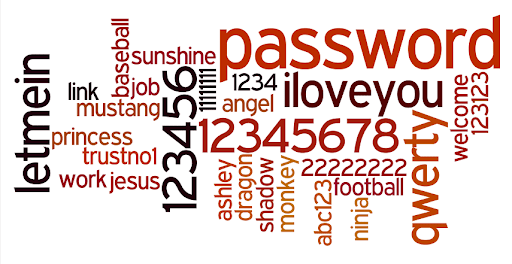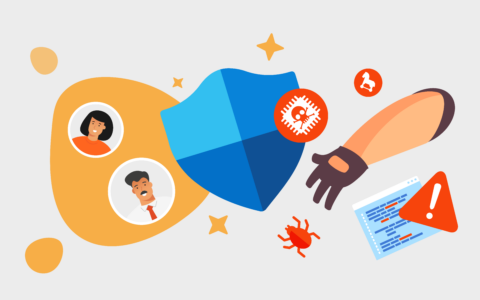Personal Data Protection or What Should We Worry About and Protect from

Selling and protecting your personal data is a hot topic. It often arouses strong emotions and causes turmoil, although we often do not even know what the reality is. So what type of data do websites collect about you? And how can you protect your personal data?
In 2006, the British mathematician Clive Humby said that "data is new oil." After 14 years, his idea turns out to be absolute truth. In the past, the political situation in oil-producing countries regularly influenced the price of oil worldwide. Today, reports on the data privacy scandal in the company Avast caused a massive fall of its shares.
This information appeared on all news servers around the world. Still, reactions seem to be negligible compared to the extreme emotions triggered by Facebook and the personal data sharing of its users. In this case, we should not speak about data selling. Authors of European Data Protection: Coming of Age mention that Facebook’s business conditions do not mention the sale of data but data collecting and sharing. Facebook advertisers pay for this data when Facebook displays ads based on the data collected.
Most of the data used by advertisers is related to users’ interests. According to Pew Research Center, 74% of Facebook users do not know that there is a list of their interests created by Facebook. The same survey showed that 51% of users are not comfortable that the company created such a list. But to be fair, the question of data collecting and sharing does not concern only Facebook, but also other social networks or Google. As there seems to be not only dissatisfaction with personal data sharing among a considerable number of users but also a lack of information, let's take a closer look at this topic.
What data do these services collect?
- Name
- Gender
- Date of birth
- Email or phone number
- IP address
- Other personal information (education, residence, employment, interests, etc.)
- Statistics of displayed ads
- Location
- Search records
- Communication records
- Photos
However, there is much more data collected by these services. Users should be mainly concerned about third-party apps. Many apps offer quick log-in using your Facebook password. And each app collects different data. Therefore, if you want to use this log-in method, you should pay attention to the business terms of the application before taking any steps.
Current trends in cyber-security
Extreme caution and protection of personal data through cyber security training is more or less the tip of the iceberg, although this is a very-often-mentioned topic. In the age of cyber-crime, users should be particularly concerned about personal data scammers and hackers as many of them underestimate this issue. So, go through the below-mentioned tips for 2020 data protection prepared by The Guardian.
Random and unique passwords
According to a study conducted by the Ponemon Institute, 51% of users in the UK use on average five different passwords for all their online accounts. This has a critical impact on security because by gaining access to one account, an attacker can quite easily crack another. It is understandable that no one can remember dozens of long passwords in the form of randomly generated characters. Therefore, we recommend using password management apps because all you have to do is to remember one master password generated by the app. By the way, if you want to find out if one of your accounts has been compromised, try haveibeenpwned.com.
Protect your smartphone
Your smartphone is a trove of important data. If a thief or fraudster criminal gets physically to your phone, they can use the data to change passwords, commit fraud, or steal from you. Some users do fingerprint scanning to unlock the phone. After several unsuccessful attempts, your phone asks you for a PIN code or password. A thief can try to guess the PIN, and the usual combinations such as 0000 or 1234 will make their work even easier. Smartphones can be configured to automatically restore factory settings and erase all your data after a certain number of incorrect unlock attempts.
Become a liar
You surely know the security questions that online services ask you to answer as an identification method if you need to reset a forgotten password. Hackers often get answers to these questions very quickly, as they are often easily traceable. All they have to do is to google them. You can prevent this by entering fictitious responses. To remember the invented answers, you can use a password manager app.
 Such passwords truly belong to the past
Such passwords truly belong to the past
Do not use two-factor SMS authentication
From the security point of view, two-factor verification is an excellent idea as it makes every hacker's life more complicated. However, if a thief steals your phone, they can put your sim in another phone and request an SMS code to reset the password to all your accounts. As an alternative, you can use an authentication app, such as Authy or Google Authenticator, or a hardware token like YubiKey. In any case, SMS verification is still better than no protection at all whether you're using an SMS reminder as a business or as an individual.
Stay secure even if you are away from home
Attackers use USB charging ports in airports, train stations and hotels to infect your device with malware. To prevent this, you can carry a charger that plugs into a power socket or buy a power-only USB charging cable. A more common problem is the use of free wireless internet access in these places. Public wi-fi is often used to steal personal information such as emails, photos, passwords, private documents, and bank details. To reduce the risk, you should use a virtual private network, the so-called VPN.











